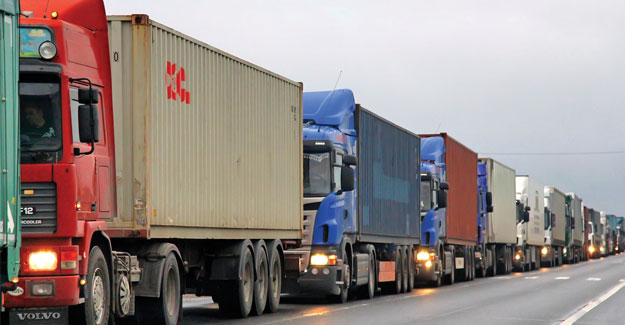
National Logistics Policy Will Bring Down Logistics Cost For Textile Sector
The domestic textile industry has been undertaking multiple measures to bring down the cost of its operation and be cost competitive in the global arena. However, despite its efforts on the internal front, some of the external and macro economic factors have not been allowing the industry to put up an efficient supply chain. High logistics costs blunt the competitive edge of the Indian textile industry. The Union government's draft National Logistics Policy floated recently has taken note of the importance of logistics in sustaining the growth momentum of the economy going forward as also building a strong platform for the entire industrial sector. The government through a National Logistics Policy aims to put up a robust policy framework and action plans to bring down the overall logistics cost from 13-14% of the gross domestic product (GDP) to 10%, in line with that in the US, EU and Japan. "Logisitcs is an integral part of textile business. Any effort to bring down the cost of logistics, more so in a sustainable manner, will go a long way in helping the domestic textile industry which is faced with multiple challenges. We welcome the formulation of the National Logistics Policy," says D K Nair, former secretary general of CITI and an textile expert. The Union commerce ministry has proposed several measures such as setting up a separate fund, single-window e-marketplace and law to define the role of various stakeholders, as part of the draft national logistics policy released recently. The policy aims at integrating and optimising various elements of a logistics value chain, to ensure seamless, multi-modal growth of an efficient logistics sector in the country. The other thrust areas of the policy include focusing on critical projects to enable first mile and last mile connectivity; proper development of multi-modal logistics parks (MMLP); interventions to reduce logistics cost and promote efficiency for movement of key commodities; and setting up a Logistics Data and Analytics Center. Besides, it includes creating a Center of Trade Facilitation and Logistics excellence; promoting cross-regional trade on e-commerce platforms through a seamless flow of goods; promoting green logistics; and setting up a start-up acceleration fund. It says a non-lapsable logistics fund will be created, to drive progress against the key thrust areas. The fund can be deployed for providing viability gap funding for select MMLP projects, first and last mile projects and projects for poorly-serviced remote areas; incentivising select logistics skilling programmes and setting up a start-up acceleration fund to incentivise the development of new technology. Talking about the law, the draft says that a framework act on integrated logistics will be enacted to define the role and responsibilities of all stakeholders in the multimodal logistics space. This will institutionalise the defined roles of the relevant stakeholders as per the national logistics policy. Further, the draft has suggested constitution of four committees or councils including the National Council for Logistics, chaired by the prime minister; an apex inter-ministerial committee, chaired by the Minister of Commerce and Industry; an India Logistics Forum chaired by the commerce secretary; and an empowered task force. This is required as the logistics wing under the ministry would be requiring extensive coordination, data gathering and monitoring across central ministries including roads, railways, shipping, civil aviation, food processing finance and home affairs. "The council (chaired by the prime minister) will provide overall direction and guidance for the integrated development of logistics in the country. Further, it will review the progress made against the Integrated National Logistics Action Plan every six months," adds the draft. The ministry believes that creation of a national logistics e-marketplace as a one-stop marketplace will involve simplification of documentation for exports/imports and digitisation of processes. An effective and efficient logistics ecosystem can be a key contributor to robust economic growth in the country, with the potential to facilitate domestic and foreign trade, promote global competitiveness, enhance incomes, and drive the Make in India initiative, adds the draft.
Textile Excellence
If you wish to Subscribe to Textile Excellence Print Edition, kindly fill in the below form and we shall get back to you with details.












